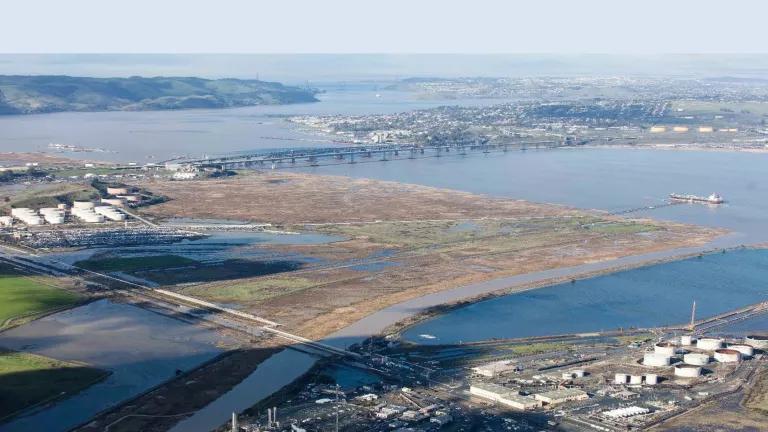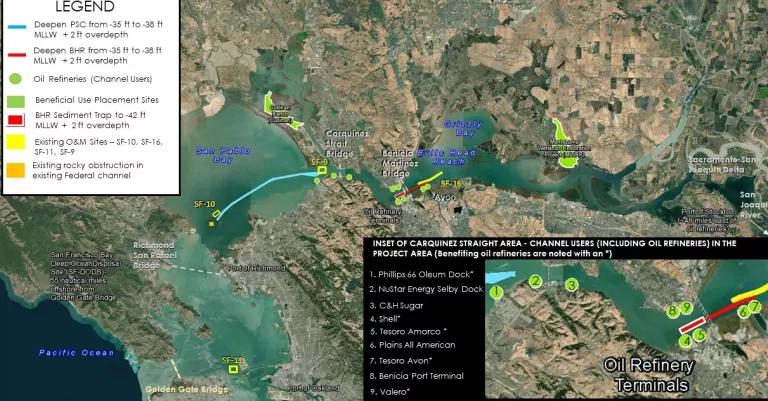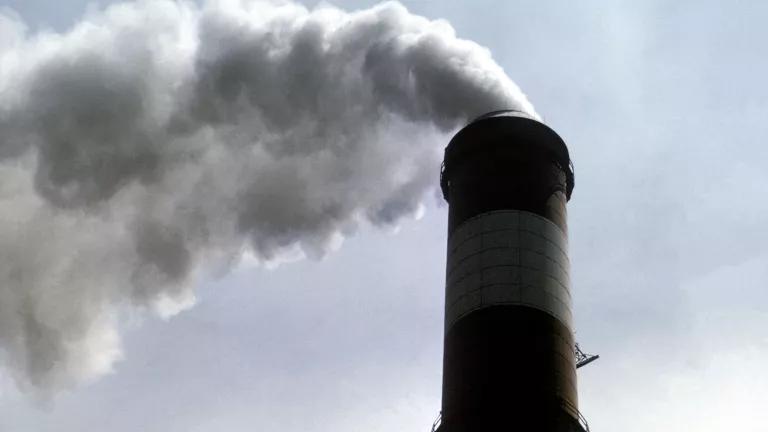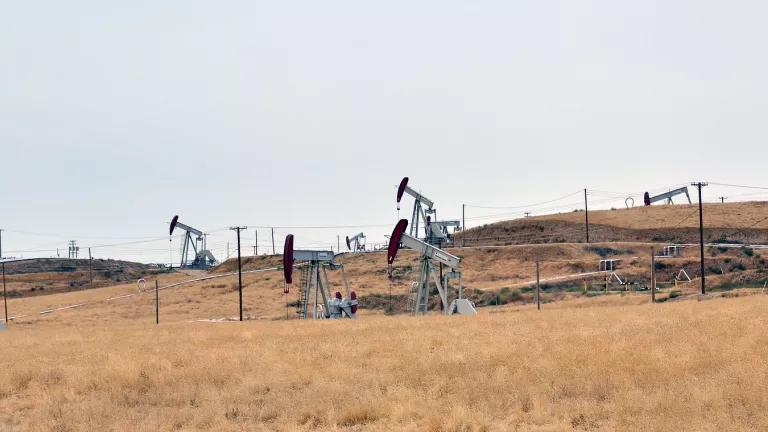The Army Corps Refinery Bailout Is Just What We Don’t Need

Most people paying attention, including our Governor, understand and agree that the oil industry is not California’s future. The industry has been in steep and steady decline, contemporaneously with the state’s efforts to ratchet down our greenhouse gas footprint.
So pretty much the last thing that would make sense in this scenario would be to dish out a multi- million-dollar public subsidy to shore up the oil industry. But, well, yes, you guessed it - that’s pretty much exactly what the federal government is trying to do right now. The United States Army Corps of Engineers appears to be on the verge of greenlighting a plan to dredge and deepen the Carquinez Strait, which is the route that oil tankers take from California’s coast to a set of large Bay Area refineries. The Corps issued its Final Environmental Impact Statement (EIS) for the project in January, with the comment period set to close April 21 (NRDC and its coalition partners will be submitting comments).
There are five major Bay Area refineries, and four of them—located in Martinez, Benicia, and Rodeo—are located along the Carquinez Strait, which connects the San Francisco Bay with inland waters. The Strait is relatively shallow, meaning that oil tankers cannot come through it carrying a full load of oil—so they arrive at the refineries less than full. The Corps means to solve that problem for them, on the taxpayers’ nickel, by deepening the Strait to allow bigger and fully loaded ships reach the refineries—including enormous Aframax and Suezmax tankers. The plan is estimated to cost taxpayers $3.6 million per year, and benefit the refiners $11.3 million per year.

This would be a bad enough idea if it were merely about economically propping up current refinery operations. What makes it a really, spectacularly terrible idea is that the dredging appears likely to increase the volume of oil processed at the four affected Carquinez refineries. In comments on the draft EIS published last year, an expert for the environmental groups determined that these refineries are all operating well below their capacity, while the one Bay Area refinery that can receive tankers at fuller draft—Chevron Richmond—is using almost all of its capacity. The Phillips 66 Rodeo, Shell Martinez, Tesoro Martinez, and Valero Benicia refineries are operating at 86.9%, 94.2%, 86.5%, and 96.6% capacity, respectively; while the Chevron Richmond Refinery is operating at 99.7% capacity.
That fact, by itself, is not absolute proof that the shallow Strait is a bottleneck to increased production at the Carquinez refineries. But it’s damn sure a smoking gun, in the absence of an economically rational explanation for why these refineries would simply leave their capacity idle.
EISs are intended to ferret out and analyze exactly such issues, but the Corps refused to. In keeping with an what appears to be an unfortunate trend in EISs for terrible projects, the Corps responded to this set of concerns with a single vague and repeated blowoff: “The Corps does not expect the proposed channel modification … to have an impact on the global supply and demand of crude oil and refined petroleum exports, and therefore would not be expected to have an increase in oil refinery production.” Of course, the expert’s conclusion regarding an uptick in refining was not grounded in global market trends as this dismissive handwave would suggest; and the Corps utterly ignores his actual reasoning grounded in refinery capacity data.
If the dredging does in fact result in an increase in refinery capacity utilization, the environmental impact would be formidable. Refineries—particularly the California refineries that process heavy crude oil—are enormous sources of both greenhouse gases and conventional pollutants that harm local communities. As I explained in a recent post, the fine particulate matter pollution they generate has been linked to increased COVID-19 risk—implicating serious environmental justice issues, since refineries are disproportionately surrounded by communities of color.
Moreover, additional large tankers coming through the Bay could increase the number of deadly collisions with large whales and other marine mammals, which already suffer significant mortality from these ship strikes as things stand now.
And if that’s not enough, some of those tankers could well be carrying heavy nonfloating oil from Canada, which is notoriously difficult if not impossible to clean up when it spills. Just last year, the California legislature and Governor Newsom recognized the seriousness of the nonfloating oil spill risk by enacting AB 936, providing for heightened planning to address such spills, which have wrought ecological havoc elsewhere in the country.
Do not be fooled by the Corps’ rather disingenuous claims that any of this is about reducing Californians’ gas prices. Aside the fact that crude oil transportation is a tiny fraction of gas prices (too small to merit its own mention in most price breakdowns), and that oil prices are set on a world market, the debottlenecked capacity would be used substantially for producing refined products for export. West Coast demand for refined products has been steadily dropping since 2010, but both refinery production and exports from West Coast refineries have been increasing since then; and Bay Area refineries are now net exporters of gasoline and diesel fuels. None of this is really about California consumers. It’s about, as our friends at Communities for a Better Environment have memorably put it, making California the gas station of the Pacific Rim.
Struggling Californians need all kinds of support right now to get through our troubled times. Of all the ways our tax dollars could be spent to help us, bailing out a dying industry so it can further pollute our communities in order to manufacture exports that drive climate change really ought to be low on the list.




